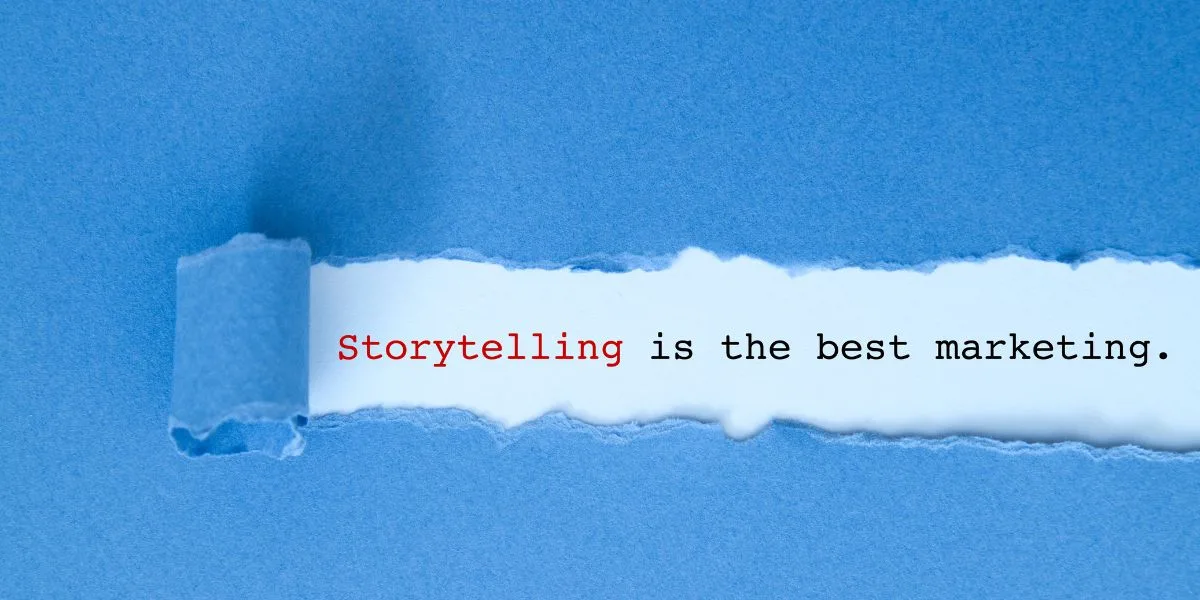Listen to this Article
In today’s fast-paced marketing world, seminar marketing remains a strong option within a multichannel approach. It’s an effective way to connect with potential clients and generate leads. Whether you are a Medicare agent, preneed provider, financial advisor, or other small business owner, hosting a seminar can help you educate your audience and convert them into loyal customers.
In this blog, we’ll explore seminar marketing, discuss its pros and cons, and explain why it’s still a smart choice for small businesses looking to grow.
What Is Seminar Marketing?
Seminar marketing involves organizing events where businesses invite potential clients to learn about specific topics. These gatherings focus on educating attendees about the services offered by the host. For example, a Medicare seminar may discuss Medicare plans, while a financial seminar might explain investment strategies. The mix of useful information and a friendly atmosphere allows prospects to ask questions and connect with your brand.

The Benefits of Dinner Seminars
1. Personal Connection
One of the biggest strengths of seminar marketing is that it helps create real, personal relationships with potential clients. Unlike digital interactions, face-to-face connections foster trust and rapport that are hard to achieve through other methods.
At a dinner seminar, attendees can meet and talk with you directly. This makes your brand feel more human. It also shows that you are approachable and trustworthy. This connection is key to converting interested prospects into loyal customers, as it allows you to demonstrate your expertise in a setting where attendees feel valued and supported.
2. Targeted Audience
Dinner seminars attract a specific group of people who are already interested in your expertise. This creates a more qualified audience than using general outreach methods. This targeted approach means your efforts are aimed at individuals who are likely to need your services or products.
For example, Medicare agents can extend invitations to individuals nearing retirement, while financial advisors can attract those interested in learning more about investment opportunities. This precision reduces wasted resources. It also increases the chances of reaching engaged, high-quality leads ready to take action.
3. Educational Value
By sharing valuable insights and content during the seminar, you position your business as a trusted authority in your field. Attendees like learning about topics that matter to them and they are more likely to trust businesses that give useful information.
A well-organized seminar provides valuable information. It not only teaches attendees but also encourages them to engage. They can ask questions, share concerns, and join discussions. This dialogue strengthens their trust in your expertise and builds a foundation for ongoing relationships.
4. Memorable Experience
A dinner seminar is more than a presentation or sales pitch. It is an experience that shares knowledge in a friendly setting. The added touch of a shared meal turns your event into a memorable occasion, leaving a lasting positive impression.
When people connect your brand with a positive experience, they are more likely to remember you. This helps them when they are ready to make a choice. This aspect can set you apart from competitors and foster a strong brand connection with your audience.
5. Networking Opportunities
Live dinner seminars offer a unique platform for both you and the attendees to build connections. Attendees connect with you and with each other. This creates a community feel that makes their experience better.
This networking can create valuable word-of-mouth referrals. Happy attendees share their good experiences with friends, family, and colleagues. These people may also be interested in your services. The relationships formed during these events often last beyond the seminar. Attendees can become advocates for your brand. This helps expand your reach through real, genuine referrals.
Unlock the Complete Seminar Marketing Toolkit
Be prepared for your next seminar marketing event with three essential guides: The Ultimate Guide to Public Speaking, the 2025 Event Planning Calendar, and a Seminar Handbook.
The Drawbacks of Seminar Marketing
1. Costs Involved
While seminar marketing can generate leads, it does come with costs. Expenses like venue rental, catering, and promotional materials can add up. Small businesses should carefully evaluate their budget to ensure that the potential return justifies these costs.
2. Time-Consuming
Planning a successful seminar requires time and effort. From selecting a venue to arranging catering and promoting the event, the logistics can be overwhelming. It’s crucial to allocate enough time to ensure that the seminar is well-organized and runs smoothly.
3. Attendance Challenges
Even with good promotion, there’s always a chance that fewer people will attend than expected. Scheduling conflicts or competing events can affect attendance. To minimize this risk, consider strategies to encourage RSVPs and follow up with potential attendees.
4. Limited Reach
Seminars can attract targeted audiences, but they may also limit your reach compared to digital marketing. Some potential leads might prefer online resources or virtual events. It’s important to find a balance between in-person and online marketing efforts.
Maximize the Impact with Outsourced Seminar Marketing
While dinner seminars are highly effective, planning and executing them requires significant time, effort, and resources. Outsourcing your seminar marketing to skilled professionals can simplify the process. This helps you get the best return on your investment.

Making Seminar Marketing Work for You
Dinner seminar marketing has its challenges. However, it remains one of the best ways for small businesses to generate leads. This is especially true in fields like Medicare, preneed, and financial advising. When done right, seminars can help you connect with high-quality prospects, educate them, and ultimately turn them into clients. Here are key strategies to maximize your seminar’s impact:
1. Choose Relevant Topics
Selecting a topic that resonates with your audience is critical to attracting interested attendees and keeping them engaged. Choose topics that address specific needs, concerns, or common misconceptions in your industry.
Medicare agents can attract a crowd by offering a session on Medicare plans. They can also focus on key enrollment periods. Financial advisors could explore retirement planning strategies, asset protection, or estate planning tips that provide valuable insights.
Tailoring your content to address your audience’s most pressing questions demonstrates your understanding of their needs and positions you as a resource they can trust.
2. Effective Promotion
A strong promotional strategy is essential to drive attendance and ensure your seminar reaches the right audience. Use a mix of promotional channels to broaden your reach and attract a diverse range of potential attendees.
Social media platforms like Facebook and LinkedIn are excellent for targeting specific demographics, while email marketing allows you to reach out to your existing network. Consider direct mail campaigns, which can be particularly effective in reaching older audiences or those who may not be active online.
To further boost attendance, encourage registered attendees to bring a friend or family member—this not only increases turnout but also broadens your audience with potential referrals who may benefit from your services.
3. Create an Engaging Experience
The structure and flow of your seminar can significantly impact attendee satisfaction and engagement. Start with a warm welcome and introduction, and make sure to include a Q&A session or open discussion period that allows attendees to ask questions and clarify doubts.
Using visuals, handouts, or interactive elements can keep the content interesting and help reinforce key points. Remember, a successful seminar is one where attendees feel involved, informed, and valued. This approach creates a more memorable experience that builds goodwill and positions you as an approachable expert.
4. Follow Up with Attendees
Don’t let the relationship end when the seminar concludes. A thoughtful follow-up is crucial for nurturing the connections made during the event and converting leads into clients. Send thank-you emails expressing your appreciation for their attendance, and include any promised resources, such as slides, articles, or guides that relate to the seminar topic.
Consider extending a personal invitation to schedule a one-on-one consultation, allowing them to explore your services in greater depth. Effective follow-up demonstrates your commitment and attentiveness, solidifying the relationship and encouraging attendees to move forward.
5. Evaluate and Adjust
After each seminar, take the time to assess its success and identify areas for improvement. Collect feedback from attendees through surveys or follow-up calls, with permission, to gain insight into their experience, noting which aspects of the seminar were most helpful and where improvements could be made.
Track key metrics, such as attendance rates, lead conversions, and engagement levels, to measure your return on investment (ROI). This continuous improvement approach allows you to refine your strategy for future seminars, ensuring each event becomes more effective than the last.
Ignite Unparalleled Growth with Seminars
Seminar marketing is proven to produce more qualified prospects and more appointments than online, broadcast, or social media advertising. Get started and get in front of more highly qualified, motivated prospects.
Conclusion: Give Seminar Marketing a Try!
In a world dominated by digital marketing, dinner seminar marketing offers a unique chance to connect with potential clients in person. It helps small businesses, including Medicare agents, preneed providers, and financial advisors, build trust, educate their audience, and generate valuable leads.
While challenges exist in planning and executing these events, the rewards make them worth considering. By focusing on relevant topics, promoting effectively, and following up after the event, you can create a memorable experience that leaves a lasting impression on attendees. If you haven’t already, it’s time to give seminar marketing a try. You might find it is the missing piece in your lead generation strategy and a great way to build lasting relationships with your customers.










